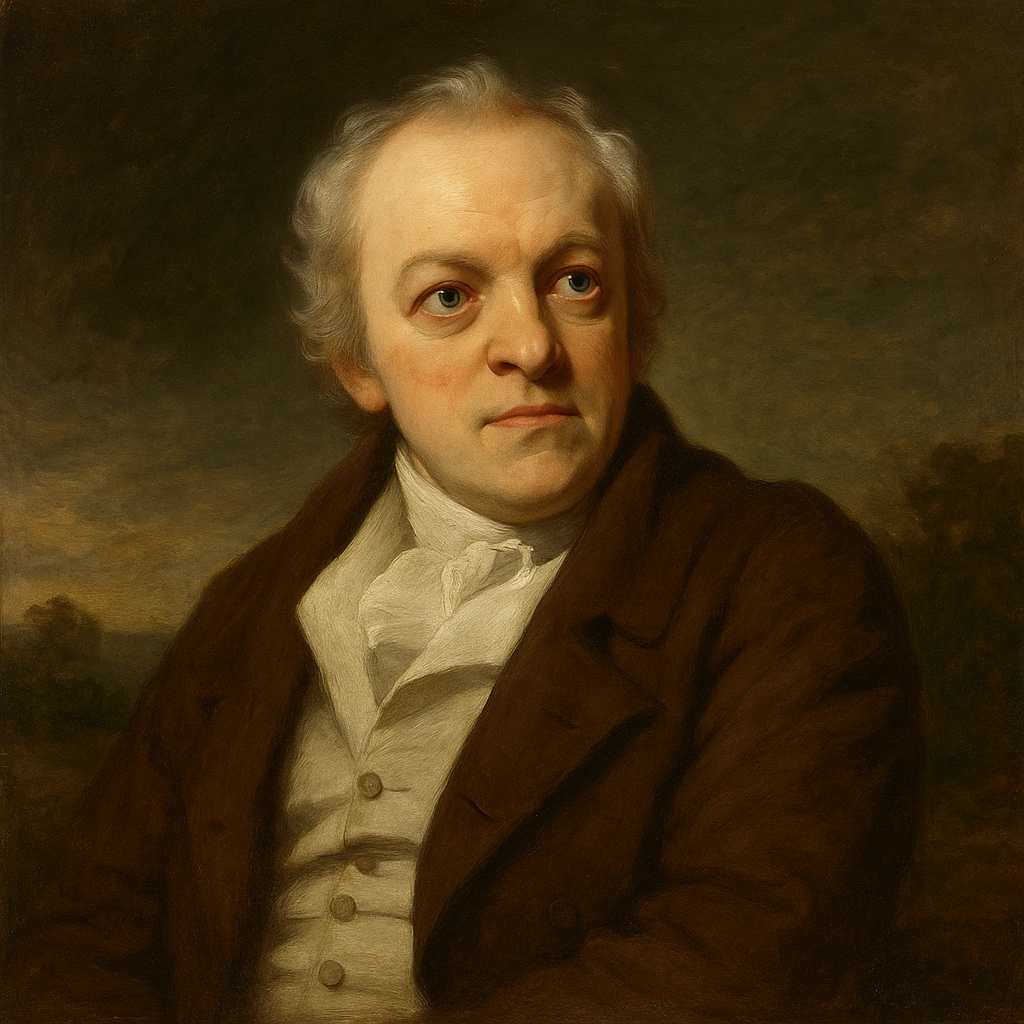The Little Girl Found
William Blake
1757 to 1827

All the night in woe
Lyca's parents go
Over valleys deep,
While the deserts weep.
Tired and woe-begone,
Hoarse with making moan,
Arm in arm, seven days
They traced the desert ways.
Seven nights they sleep
Among shadows deep,
And dream they see their child
Starved in desert wild.
Pale through pathless ways
The fancied image strays,
Famished, weeping, weak,
With hollow piteous shriek.
Rising from unrest,
The trembling woman pressed
With feet of weary woe;
She could no further go.
In his arms he bore
Her, armed with sorrow sore;
Till before their way
A couching lion lay.
Turning back was vain:
Soon his heavy mane
Bore them to the ground,
Then he stalked around,
Smelling to his prey;
But their fears allay
When he licks their hands,
And silent by them stands.
They look upon his eyes,
Filled with deep surprise;
And wondering behold
A spirit armed in gold.
On his head a crown,
On his shoulders down
Flowed his golden hair.
Gone was all their care.
'Follow me,' he said;
'Weep not for the maid;
In my palace deep,
Lyca lies asleep.'
Then they followèd
Where the vision led,
And saw their sleeping child
Among tigers wild.
To this day they dwell
In a lonely dell,
Nor fear the wolvish howl
Nor the lion's growl.
William Blake's The Little Girl Found
I am busy working to bring William Blake's "The Little Girl Found" to life through some unique musical arrangements and will have a full analysis of the poem here for you later.
In the meantime, I invite you to explore the poem's themes, structure, and meaning. You can also check out the home page for other musical arrangements or learn more about William Blake's life and contributions to literature.
Check back soon to experience how "The Little Girl Found" transforms when verse meets melody—a unique journey that makes poetry accessible, engaging, and profoundly moving in new ways.
Want to join the discussion? Reopen or create a unique username to comment. No personal details required!



Comments
No comments yet. Be the first to comment!